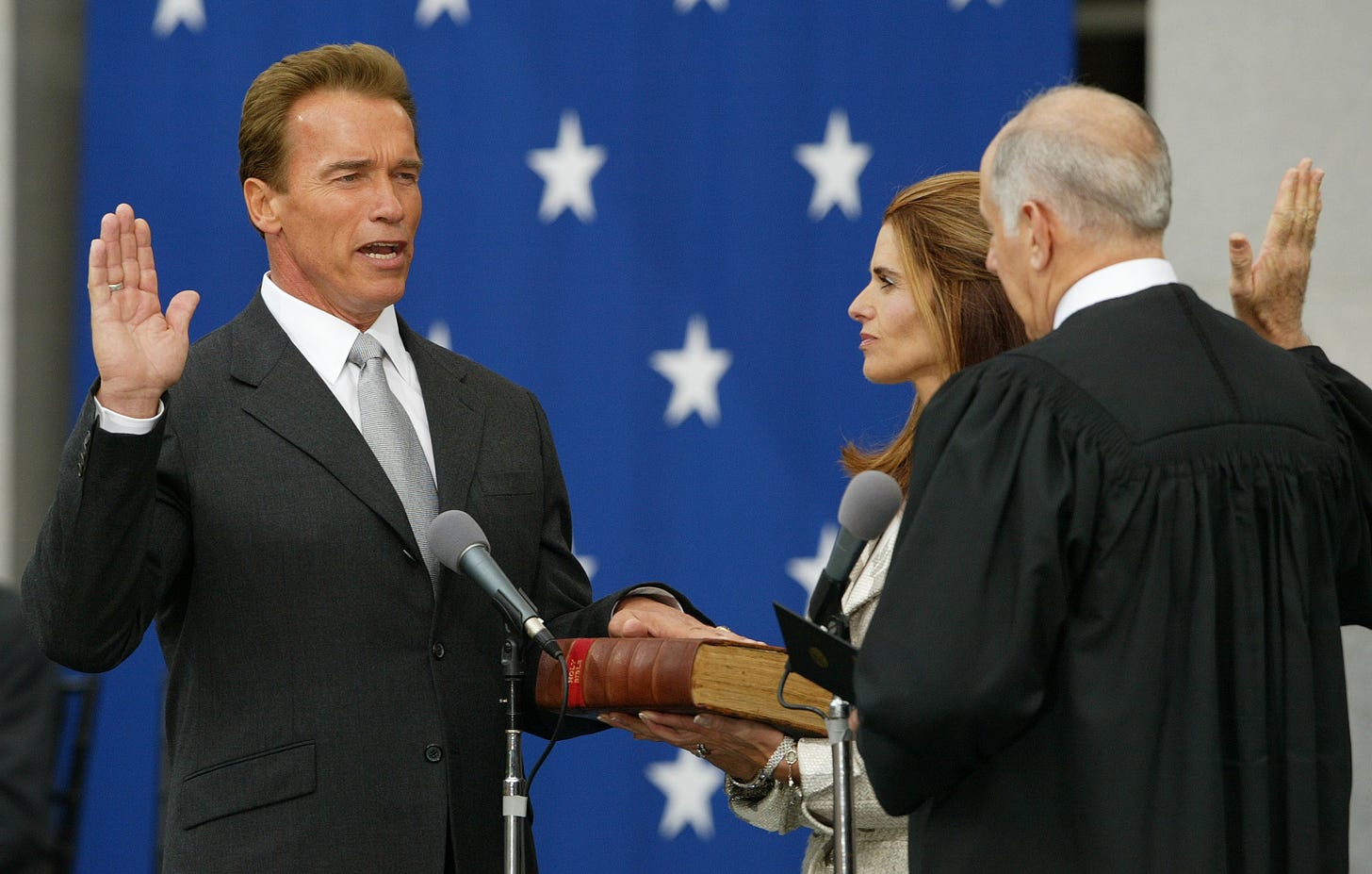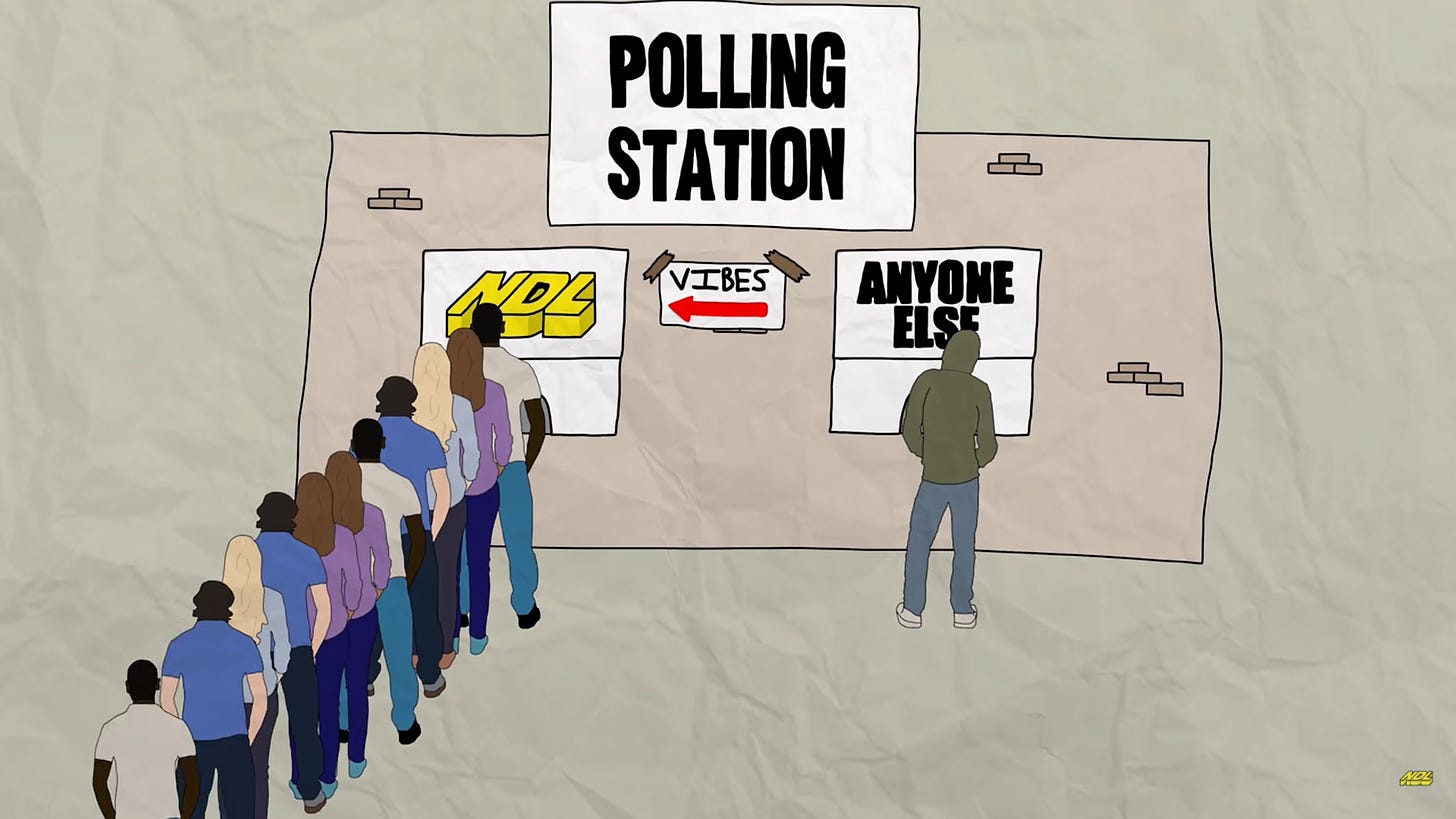Empowered Belonging is a newsletter about how good leadership can build societies fit for the 21st century. But what does that mean?
Happy new year — in this inaugural post of 2022, I want to scope out the landscape for the ideas I’d like to cover over the next twelve months, with more detail about the concepts that I’m going to focus on.
Leadership is at the heart of it
Leaders have an outsized influence on whether change manifests as a challenge or opportunity. It makes sense to invest resources in figuring out how a good person can become a good leader and how good leaders succeed. Leaders are important because they operate between three areas: idea origination, communication, and execution. In a sentence, they communicate good ideas to the rest of society and then oversee their implementation.
Leaders are the middlemen of ideas, because the skillsets required to succeed in these three areas are all different. Those who excel at idea generation tend to have deep and specific areas of expertise, alongside an aptitude for research and reflection. But you could fill a house with books covering ‘ideas ahead of their time’. There’s a different skillset when it comes to communicating (or executing) these ideas to society more broadly. Communicators have a knack for mobilising public opinion, or at least a critical mass of decision makers, and simplifying the complexity that comes with good ideas. Meanwhile, a third group executes the good ideas that thinkers have generated and communicators have promoted. In addition to ideas that never happened, there’s another house full of books dedicated to ‘good ideas that were executed poorly’. As anyone working in venture capital will claim (audaciously): an idea without good execution is worthless.

As I write, I realise that these three types of people trace themselves at least back to Freud. In his 1930 book Civilisation and its Discontents, Freuds talks, quite crudely to be honest(!), about ‘narcissistic’ people, ‘erotic’ people, and ‘men of action’. We could complain about all three of these terms, not least Freud’s excessive focus on the libido throughout his work, but his ideas are foundational today. Consider the work of Erica Ariel Fox, a leading coach for C-suite executive, and her ‘Big Four’ model, of which the ‘thinker’, the ‘lover’, and the ‘warrior’ are three.
We can always categorise Freud himself as a thinker whose skillset is not that of a communicator – indeed, he tends not to hold ‘lovers’ in high regard! – but let’s work with the substance of his ideas. The narcissist is our thinker, who “seeks satisfactions in his own internal mental processes”. The erotic is our communicator, or lover, who “will give priority to his emotional relations with others”; they are most invested in what other people believe. Last, the man of action wishes to “test himself on the external world”; here is our executor, or warrior.
To lead, you have to tie these personas together, to operate across each of these areas
But Freud is not talking about leaders. If he was, I would say he was missing something. To lead, you have to tie these personas together, to operate across each of these areas. It is tempting to frame the leader as simply the communicator, acting as the middleman between generation and execution. But communication is its own skillset. Leadership is distinct. There is a difference between Tony Blair and Peter Mandelson, his spin doctor. Specifically, it was Blair’s capacity to bridge the gap between idea origination and communication that made him one of Britain’s most successful politicians. A leader has skills that a communicator lacks. Meanwhile, that leaders also must have some bridge to the execution side, to actually get things done, need not be argued.
The fourth of Erica Ariel Fox’s ‘Big Four’ is the dreamer. Where I work, the dreamer is typically aligned with the CEO, whilst your warrior is your COO, your thinker your CPO, and your lover your CHRO. Though the Big Four are portrayed in Fox’s theory as equal but different, in practice, leaders are likeliest to be dreamers. How much I agree with the Big Four is something I’ll explore in future posts, but the point I want to make is that leaders are not specialists in one area like communication, but generalists who are able to operate across the generation, promotion, *and *implementation of good ideas.
What makes a good leader in one sector varies from what makes you a good leader in the other
Often, when we talk about leaders, we assume the word ‘political’ comes in front of it. Leaders need not be political; economic and social leaders matter too. We assume the word ‘political’ because political leaders are the focus of our news cycle and have the biggest individual capacity to respond to change. But political leaders cannot do everything, and it is because of this that other leaders matter. Economic and social leaders effect change in different worlds.
As well as being lead by the political world, change can also be led by business and society. Business leaders heavily influence the regulation of their own industry, and for larger organisations, how they impact consumers, citizens, and employees matters on a large scale. Apple has a larger market capitalisation ($2.92 tr) than Britain’s GDP ($2.71 tr). Tesla delivered just 500k cars in 2020, but with a market cap. of $1.1 tr, is still worth more than the Netherlands, whose GDP totals $912 bn. Most companies aren’t Apple, but the 500 largest companies in the USA are worth twice as much as the world’s largest economy ($40 tr market cap. v. $20 tr GDP).
Of course, how business leaders respond to change is a product of causes that are slightly different to those which influence political leaders. Businesses are generally smaller than the state, which forces leaders to invest more resources coordinating with peers to have an impact, but their smaller size also makes each business more nimble. What makes a good leader in one sector varies from what makes you a good leader in the other, but business leaders absolutely matter, and they respond to change through the same process.

Social leaders are even more different from their political and economic counterparts, because they lead an even more disparate group: individual people; even more nimble, but even harder to coordinate. As well as acknowledging that what *makes *a good leader varies across these world, it is also the case that the criteria for what a good leader should *achieve *varies too. It is silly to expect social leaders like Greta Thunberg or Malala Yousafzai to effect change in the same way a politician would. Instead, we find that these social leaders mostly mobilise society in order to mobilise leaders in other worlds. Social leaders could coordinate society to respond to change (e.g. imagine if everyone stopped taking flights), but it is often more effective to put pressure on business and political leaders to commit to carbon neutrality (e.g. BA) or increase Air Passenger duties. Alongside effecting change within their own worlds, leaders can also effect change in others, and depending on what type of leader they are, have different incentives to do this.
Change is the only constant
“change is the only constant in life” — Heraclitus (535 - 475 BC)
Channelling my inner Heraclitus, leaders are always dealing with change. But the change we see today is era-defining. The skillset required to be a valuable employee is undergoing a massive transformation. Over the next thirty years, computers will automate much of the drudgery of work whilst failing to automate judgement and creativity, where humans will retain a comparative advantage. This means that employees need to transform their skillset, but this is a major change, and the world of work could fail to adapt to the challenge, leaving behind hundreds of millions of people, or it could seize the opportunity to build a much more productive (and equal) economic system.
Leaders also need to understand the structural changes that are influencing how societies mobilise and assign prestige. These are two of the key, fundamental ways in which societies matter as a social construct. The big change is that social processes are a lot less hierarchal, a lot more competitive, and a lot more global. Thus, the doors to exert social influence are swung open to anyone with an internet connection; your methods to attract and retain attention have to change to survive in this new competitive landscape; and the assumptions and views that permeate society also become a lot more international. The challenge for social leaders is the heightened incentive to prioritise attention over impact, but overcoming this gives social leaders the enormous opportunity to drive impact on an unprecedented scale.

These challenges and opportunities in our economic and social worlds underlie challenges and opportunities in our political one. If our economic world cannot find productive uses for labour and if our social world cannot find impactful uses for attention, then our political system will face challenges in turning good ideas into good actions. As for all systems which struggle to do good, it will come under threat. Politics will become a shouting match between extreme sides desperate to snatch their next fistful of the pie from the other. On the other hand, seizing the opportunities in change presents political leaders with a chance to build a much better society, built for the 21st century, and able to thrive.
Questions
This is my first foray into the landscape upon which I would like to build an elegant answer to the question ‘how can good leadership build societies fit for the 21st century?’
As expected, I have raised more questions than answers. I am tapping the vague notion of ‘good’ as a north star and ultimate end: what does good look like, and what is the role of a north star? I have not considered the economic, social, and political world as equals: how do they relate to each other and what is their role? I have not gone into depth on what leaders look like in each sector, how the lifecycle of ideas varies in each sector, nor why leadership and ideas matter above all else. There are many others, and I look forward to reflecting on them all in the months to come.